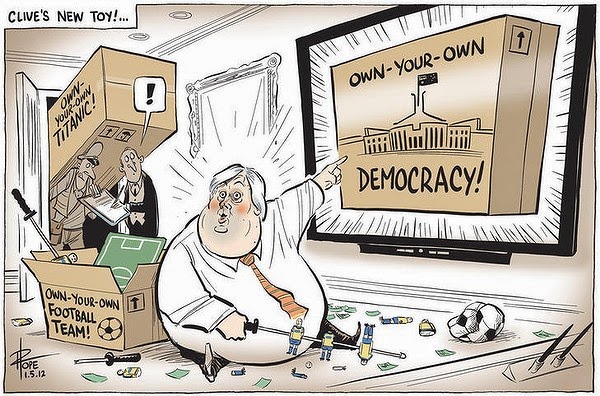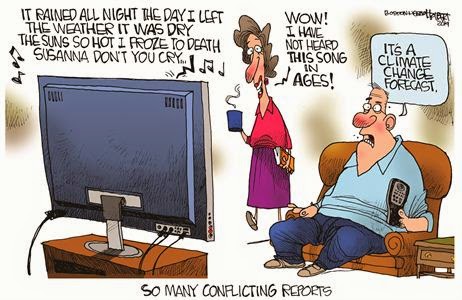Statements on a
theme:
“Voters need to
ask themselves who they trust to protect jobs and guide the economy through a
new age of uncertainty.” – Kevin Rudd
"This election will be
about trust." – Tony Abbott
This election, like never
before, is about who you can trust - Christine Milne
“From this
day forth, you put your trust... in me.” – Lord Voldemort.
During the
2013 election, the economically literate were dismayed as then opposition
leader, Tony Abbott in question after question ruled out any action that would
reduce the profligate waste of taxpayers money that had been occurring under
Labor, to the point where he was willing to embrace every big spending
‘initiative’ that Rudd came up with.
The reality
was that with Labor less popular than a dose of clap and major concern in the
electorate at the ever-increasing deficits and escalating national debt, he
pretty much had carte blanche to offer to take the hard decisions necessary to
pull the nation back into gear. He
would have been cheered for it.
 He didn’t
have the courage to do it and now has to tread the tightrope between the need
for action, and his ruling out most of those very actions.
He didn’t
have the courage to do it and now has to tread the tightrope between the need
for action, and his ruling out most of those very actions.
… Here's one
answer. Parties don't see election promises as promises in the plain
English meaning of the word. Instead, promises are signals designed to express
a deeper character of the political party. When Abbott promised not to change
the pension and not to cut public broadcasters he was trying to signal that his
would not be a radical government; that he was firmly targeting the median
voter.
After all,
why give the SBS promise? Did it win any marginal votes? Surely not. But it did
suggest to the electorate he had no secret plan to burn through Australia's
institutions. Promises like that increase the political cost of radical action.
This practice
is of course deeply deceptive - election promises as signals rather than
genuine commitments - but it's a deception we're used to.
Voters are
rational. We know campaign nonsense when we see it. As this
interesting 2004 paper points out, voters infer the true policy
position of candidates for office despite the thicket of untruths.
Obviously
Coalition failures deserve to be treated as harshly as Labor failures were.
Perhaps more. The Coalition swore to be guided by higher ethical standards than
its predecessors.
But let's not
pretend to be surprised. Australia is one of the world's oldest democracies.
We've been voting for broken promises for a very long time.
To some
extent Berg is correct, although normally incoming governments find an excuse
to break their promises as early as possible in their tenure.
Whitlam
claimed that the problem with the economy was that we had too much money
sloshing around in our pockets and the responsible thing for government to do
was to increase taxes to absorb that which we didn’t need.
Malcolm
Fraser was too arrogant to give us a reason to break his, but Hawkie and
Keating came up with a budget ‘black hole’ and offered us consensus. Under consensus, the government would
negotiate with the opposition in order to decide the position they would like
us to be in, and what to do with us when they had us there. The result was, that rather than being
screwed by the government, we were gangied by the parliament as a whole.
It hasn’t
gotten any better since.
One of Tony’s
options is the use of the term core, and non-core promises. That though has been done already.
On the
serious side though, there are plenty of options available.
While Abbott
promised not to reduce the funding for the ABC and SBS, he said nothing about
keeping them in public ownership. Fairfax
already provides left wing bias quite effectively in the private sector, so
there is really no need for the government to duplicate that service. There is nothing wrong with the ABC
that couldn’t be fixed by Kerry Stokes, James Packer, Rupert Murdoch, or Gina Rinehart.
The
Department of Climate Change could be abolished. It would simply require an acknowledgement that the
government hasn’t the competency to change the climate, certainly not for the
better.
While doing
this, forget the idiotic climate action plan, abolish the ‘Clean Energy Finance
Corporation’, the renewable energy target, subsidies on wind, solar, etc, and
mandates on the use of renewables.
This would save billions.
There is
considerable scope for the abolition of all federal government departments that
duplicate state government ones.
The states themselves can run their own affairs in ways that are better
suited to their individual circumstances better and more efficiently than can
be done by a distant bureaucracy,
Where
coordination is needed, the relevant state ministers can do this.
All of the
departments left will probably go out on strike in solidarity with their fellow
public servants. When this
happens, the government should examine the effects, and abolish all of those,
which cause no inconvenience to the public by their absence.
By this time
the budget crisis would be solved and we would be back in surplus again, but we can go further. The SPC issue proved that there is really no need for taxpayers to pad the profit margins of Coca Cola
Amatil. There is no reason why any corporate welfare should continue; the government having made a nice start here. It should then look at the inefficient churn of middle class welfare which would no longer be required as everyone would benefit from the substantial tax cuts the above would make possible.














